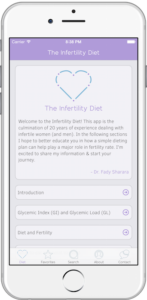Fertility Drugs and Ovarian Cancer
Many women have questions about fertility drugs and ovarian cancer. Ovarian cancer occurs in 1-2% of US women, with a mean age at diagnosis of 60. Some women with family history of ovarian cancer, and especially those with special genetic mutations (such as BRAC1 and 2) have a higher incidence of ovarian cancer. There are also protective factors against developing ovarian cancer, such as using the birth control pill for 5 years or more, having a tubal ligation, and having 4 or more pregnancies.
The increased incidence of infertility in the general population, better access to health care, and the vast improvements in fertility treatment, especially better success rates with IVF, have resulted in increased use of fertility medications (such as clomiphene citrate [Clomid, Serophene] and injectable gonadotropins [such as Gonal-F, Bravelle, Follistim, and Menopur]).
Since 1991, a lot of media attention has been generated whether there is an association between ovarian cancer and fertility drugs. Some of the earlier studies have suggested such an association (these studies were based on a very small number of women with ovarian cancer and infertility), but nearly all of the newer (and larger) studies have failed to detect such an association, including few recent meta-analyses (where data from several large studies were pooled together then examined). In one large study conducted between 1989 and 1999 in 8 centers in the US, Denmark, Canada, and New Zealand, 5,207 women with ovarian cancer were studied along with 7,705 matched controls. The study was adjusted for age, race, family history of ovarian cancer, duration of oral contraceptive use, tubal ligation, number of prior pregnancies, education, and research site (all factors that can affect ovarian cancer positively or negatively). The results from that study showed that infertile women who have failed to get pregnant after 5 years of infertility are 2.7 x as likely to develop ovarian cancer compared to women who get pregnant in less than 1 year of trying to conceive. However, the investigators could not find any association between fertility drug use or duration of fertility drug use and ovarian cancer.
That study also showed that infertile women with endometriosis or unexplained infertility have a higher chance of developing ovarian cancer later in life, but we need more data to say for sure whether women with endometriosis or those with unexplained infertility have higher odds at developing ovarian cancer. In addition, fertility drug use in infertile women who never delivered a child was associated with a 2.5 x higher incidence of borderline serous ovarian cancer (these are non-invasive cancers with excellent chances for cure with surgery), but not with invasive ovarian cancer.
Are women willing to accept the theoretical risk of a higher chance at developing ovarian cancer if fertility treatment will result in a pregnancy? That question was posed to a group of 61 women at 2 Fertility Clinics in Toronto in 1997. Of the 52 that responded, 48 (79%) were willing to accept an increased risk of ovarian cancer (for some even if it meant increasing their risk by 5 folds).
Pooling the recent results on the subject, it seems that women who have never been pregnant have a 2.5x higher chance at developing ovarian cancer in their life times compared to women who have had children. Also, having more pregnancies reduces the chance at developing ovarian cancer, and recent data suggest that women who undergo fertility treatment have a lower chance at developing ovarian cancer since many of these women get pregnant, and some come back for more babies, further reducing ovarian cancer risk.
What are the current guidelines for use of fertility medications? We recommend that women do not undergo more than 3 cycles of Clomiphene citrate, 3 cycles of injectable medications in conjunction with IUI, and if not pregnant, 3 cycles of IVF or IVF/ICSI. The women who fail to conceive after 3 cycles of IVF should consider donor egg or adoption.
In brief, the latest data on this subject are very reassuring and suggest that the use of fertility drugs, and the duration of fertility drug use, are not associated with a higher chance of developing invasive ovarian cancer. The definitive answer may not come for some time: the NIH is currently following 10,000 women who underwent fertility treatment. Those women will be followed for 30 years (remember that the mean age at developing ovarian cancer is 60). The 6-year analysis of the data has shown that none of those women have developed ovarian cancer to date. We are encouraged by the NIH data, and the results of the recent large trials, however continued vigilance is still needed until this issue is resolved. Along the same vein, a large study from Denmark currently in press in the British Medical Journal in 2009 evaluating over 54,000 failed to show any association between fertility drugs and ovarian cancer.
Contact us to learn more about fertility care.


